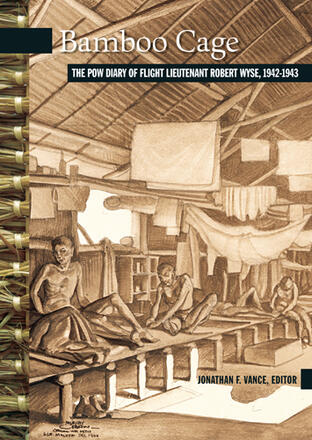
Bamboo Cage
The P.O.W. Diary of Flight Lieutenant Robert Wyse, 1942-1943
Description
In 1942, RAF flight controller Robert Wyse became a Japanese prisoner of war on the island of Java in Indonesia. Starved, sick, beaten, and worked to near-death, he wasted away until he weighed only seventy pounds, his life hanging in tenuous balance. There were strict orders against POWs keeping diaries, but Wyse penned his observations on the scarce bits of paper he could find, struggling to describe the brutalities he witnessed. After cleverly hiding his notes in a piece of bamboo next to his bed, in December of 1943, he carefully hid his notes inside a bottle beneath his prison hut. After the war, he wrote to the Dutch authorities, asking them to dig up his diary and return it to him. In this detailed and frank portrayal of life under Japanese occupation, Wyse reveals the both the best and the worst of human nature. He criticized his fellow soldiers for botching the defence of Java and Sumatra and admonished his captors for their brutality. Yet, Wyse also describes the selfless efforts of the Dutch civilians who helped the prisoners by doing whatever they could as well as his first-hand observations of acts of self-sacrifice among the prisoners themselves.
Reviews
In 1942, RAF Flight Controller Robert Wyse became a Japanese prisoner of war on the Indonesian island of Java. In this no-holds-barred account, Wyse describes the harsh conditions he and his fellow prisoners suffered. Subjected to beatings, starvation, debilitating illness, and unbelievably harsh work, Wyse struggled to describe the brutalities he witnessed. Although the punishment for keeping a diary would have been severe, Wyse persevered, scrounging for bits of paper and slivers of pencil and hiding his writing wherever he could until it became too dangerous to continue. Then, in December 1943, he buried his notes in a bottle under his prison hut. Robert Wyse's diaries were retrieved by the Dutch authorities after the war.
An historical goldmine of information on life as a prisoner of war, these diaries reveal both the worst and the best of human nature.